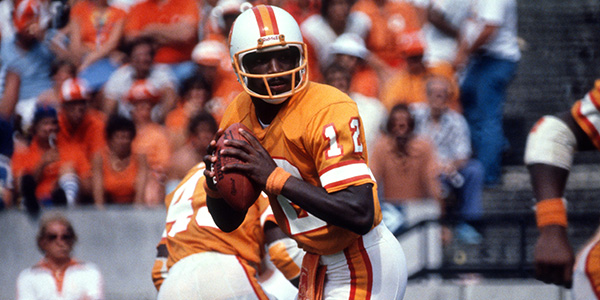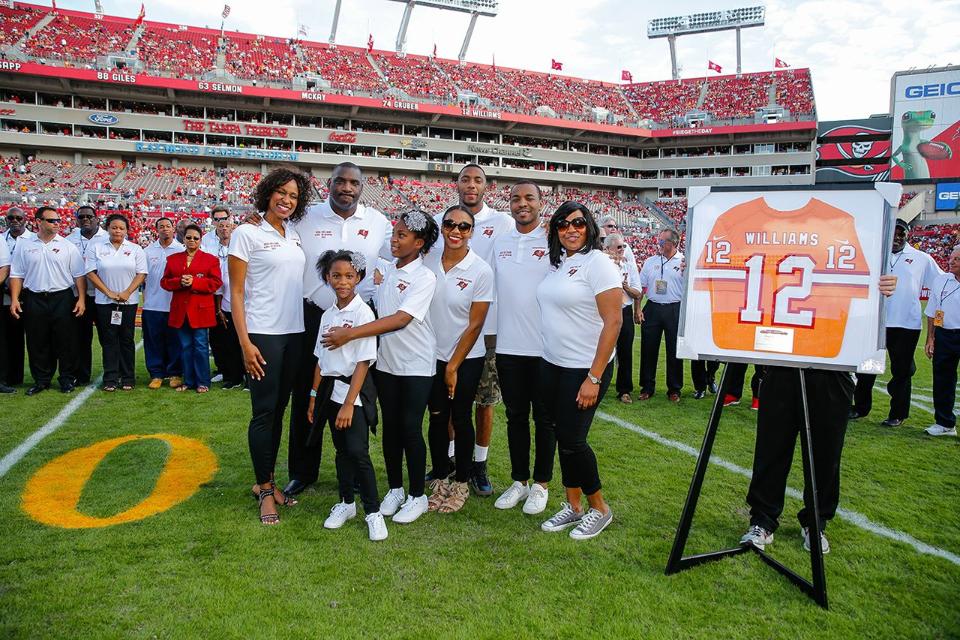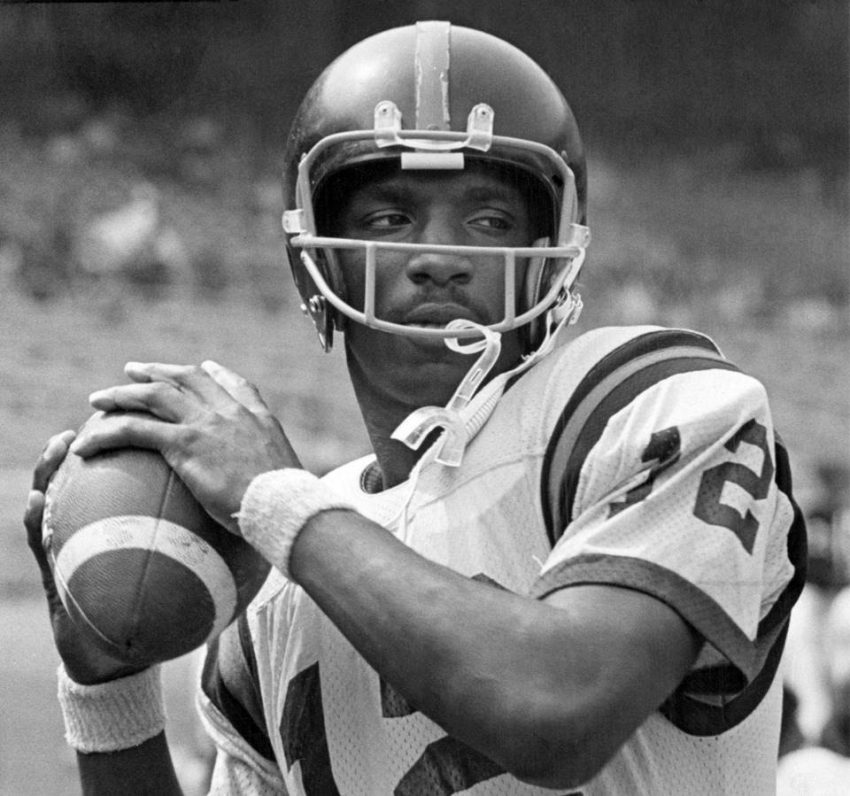The Tampa Bay Buccaneers drafted Doug Williams in the first round (17th overall) of the 1978 NFL Draft. Williams became the first African-American quarterback taken in the first round of an NFL draft. Tampa Bay, which had won just two games in the first two years of the franchise went to the playoffs three times in five seasons with Williams as the starter and played in the 1979 NFC Championship game.
During his tenure with the Buccaneers, Williams was paid $120,000 a year, the lowest salary for a starting quarterback in the league, and less than the salary of 12 backups. After the 1982 season, Williams asked for a $600,000 contract. Bucs owner Hugh Culverhouse refused to budge from his initial offer of $400,000 despite protests from Head Coach John McKay. Feeling that Culverhouse was not paying him what a starter should earn, Williams sat out the 1983 season. That year, the Bucs went 2–14, and did not make the playoffs again until the 1997 season 14 years later. Tampa Bay lost ten games in every season but one in that stretch, including 12 in a row from 1983 to 1984. Culverhouse’s willingness to let Williams walk away over such a relatively small amount of money was seen as insensitive, especially as it came only months after Williams’ wife Janice died of an aneurysm.
After a year away from football, Williams signed with the Oklahoma Outlaws of the upstart United States Football League. The Outlaws briefly called Hall of Fame coach and quarterback guru Sid Gillman out of retirement as director of football operations, and Williams was Gillman’s highest-profile signing. Williams signed a $3 million contract with a $1 million signing bonus, making him easily one of the highest-paid players in all of football. Years later, he recalled that he was won over when Outlaws owners William Tatham Sr. and Bill Tatham Jr. “treated me as a human,” rather than “a piece of cattle in a stockyard.”
In 1984, Williams led the Outlaws of the USFL in passing, completing 261 out of 528 passes for 3,084 yards and 15 touchdowns. In 1985, the team moved to Arizona Williams threw for 3,673 yards with 21 touchdowns.
After the USFL was shut down in 1986, Williams returned to the NFL, joining the Washington Redskins. He was reunited with his former offensive coordinator, Joe Gibbs, who was now the team’s Head Coach. Initially, Williams served as the backup for starting quarterback Jay Schroeder, but after Schroeder became injured, Williams stepped in and led the Redskins to an opening-day victory against the Philadelphia Eagles in the 1987 season. After splitting time with Schroeder during the regular season Williams was named the playoffs starter. He led the team to win Super Bowl XXII.
SUPER BOWL XXII
On January 31, 1988, he engineered a 42–10 rout over the Broncos, who were led by quarterback John Elway. Williams completed 18 of 29 passes for 340 yards with four touchdown passes. All four touchdown were thrown in the second quarter, which set a Super Bowl record for most touchdowns thrown in a single half, let alone a quarter. He was named Super Bowl MVP for his efforts, making him the first African-American quarterback to both win a Super Bowl and be named its MVP. He broke the Super Bowl single-game record of 331 passing yards set in 1985 by Joe Montana, who broke Williams’ record the following year with 357. Williams tied the Super Bowl single-game record for passing touchdowns set by Terry Bradshaw in 1979, which Montana surpassed with five in Super Bowl XXIV. Wiliiams’ 80-yard scoring pass to Ricky Sanders tied the Super Bowl record for the longest pass, set by Jim Plunkett’s throw to Kenny King in 1981; it was broken in 1997 by Brett Favre’s 81-yard pass to Antonio Freeman for the longest Super Bowl play from scrimmage.
Williams suffered from injuries the following season. Williams would play one final season in 1989. In 88 NFL games he threw for 100 touchdowns and 16,998 passing yards. He is a member of both the Washington Commanders hall of Fame and the Tampa bay Buccaneers Ring of Honor.




